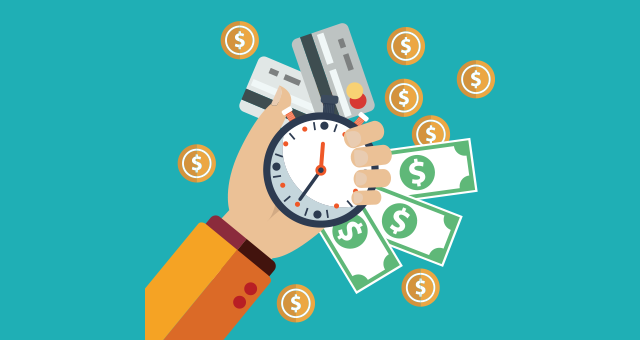
How to Avoid Late Payments & Overspending When You Have Multiple Credit Cards
One of the most practical financial tools is a credit card. If you use it properly, you will be able to make purchases while raising your credit score and accumulating rewards. However, it is essentially impossible to find a single credit card that provides all the benefits you are after. You can earn the most rewards in important spending categories like gas, groceries, dining, and travel by using category-specific cards that work well together. Additionally, you can benefit from different types of travel insurance and annual statement credits when using multiple cards.
To maximize these benefits, many Americans use multiple credit cards. Experian data from 2021 shows that the typical American has four credit cards. However, you risk racking up unauthorized charges and damaging your credit score if you do not keep track of all your cards. Several methods can ease your anxiety and make it easier.
Here are five tips to help you manage multiple credit cards.
1. Ensure That Each Card Serves A Purpose
Today, you can choose from a large selection of credit cards. Each card has its unique perks and advantages. When you want to apply for multiple credit cards, make sure that each credit card you choose serves a specific function and fits your requirements and lifestyle.
You can get a car credit card for fuel and repairs while keeping a card that offers cash back for grocery shopping or regular spending. And, if you travel frequently, you could book your flights using a credit card that allows you to accrue airline miles. You could also save the most exclusive card for luxury purchases. By doing this, you can maximize the advantages that each card provides.
2. Plan Out On How Much You Can Put On Each Card
The main benefit of budgeting is that you can gauge how much credit you can safely use. Never charge more than you can afford to pay back because carrying a balance from month to month can lead to debt as you will accrue an amount you will be unable to pay off.
Consider the credit limits and interest rates of each card when establishing a budget. Large purchases should typically be made on low-interest credit cards, and you should always try to keep each card’s credit utilization ratio at 30% or less.
3. Use The Appropriate Card For Each Purchase.
You should use the appropriate card for every purchase you make. For instance, petrol purchases should be charged to your motoring credit card to earn rebates and points, while major purchases should be charged to your top-tier credit card to get the most points possible. Make a list of all the benefits the credit cards offer and assemble a handbook on how and where to use each card.
To remember which card offers benefits in which category, you can label your credit cards with terms like “fuel,” “groceries,” or “dining”.
Further, the features of each one, which may include advantages like extended warranties, fraud protection, or travel insurance, should also be considered. When making a large purchase, these can be helpful and cost-effective.
4. Make Your Payment “Due Dates” Simpler
Due dates of one to two credit cards are easy to remember than multiple cards. Consider one or more of the following options to prevent a mix-up or missed payment:
- Set up auto-pay: It is a practical way to guarantee that payments are always on time. You can link your credit card to a bank account that automatically transfers your payments. However, ensure a sufficient balance because overdraft fees can be expensive.
- Enrol in credit card alerts: Credit card companies let you create reminders for your bill due date and when a payment posts to your account. You can also set up reminders in your calendar or on your phone. It will help you avoid late payments and debt.
- Put all cards on a set timetable: If the due date on your bill is not ideal, you can change it. You can do this with some card issuers online, while others might require a phone call. You can change the due date on your credit card to a time that works best for you, like payday. If you have several cards from the same issuer, think about setting the due dates to coincide so that you only need to log in once a month to make a payment.
5. Organize Features, Terms & Conditions Of Each Card
Likely, the limits, conditions, and features of each credit card you own will be different. You might be in a better financial position if you make a system to keep track of your credit card collection. You can use a spreadsheet, a personal finance app, a note-taking app, or a handwritten list. Include information such as:
- The day you opened the card.
- Interest rates.
- The annual fee and the following billing cycle.
- Information on rewards programs, such as which cards are eligible for particular rewards, the minimum spending requirement to receive them, and any ongoing bonuses
- The remaining balance (if you carry one or more) and the dates that payments are due.
To Sum Up
If you are careful how you use your credit cards, managing multiple cards does not have to be a difficult task. You can make the most of your cards by creating a budget, comprehending the terms and usage restrictions on your cards, and developing a payment plan that works for you.
If you have multiple credit cards and discover they have already grown to levels that are difficult to manage, contact us today. Our debt management experts can assist you in lowering your balances or paying them off faster for less money than you owe.

